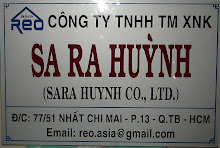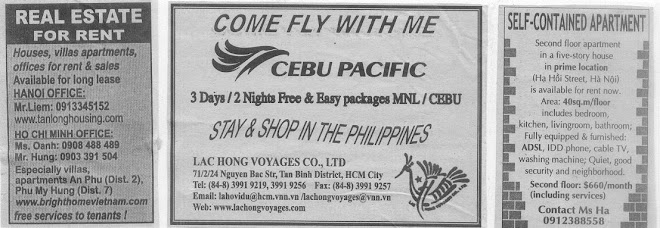An California investor recently bought a duplex for $68,000 by putting down $1,000 and having the seller accept a contract for the remaining $67,000, 10.75% interest for 30 years, and payout after 12.5 years.
The contract wrapped around a small underlying first mortgage.
Similarly an investor in Oakland, California acquired an $80,000 free and clear single-family house by putting a small sum down and having the seller carry back the rest in the form of a contract.
These are variations of the technique referred under various names such as "contract, wrap-around, or owner carry back".
This technique is one of the most frequently used creative finance tools.
It is the foundation of seller financing. Rather than refinancing the real estate property or formally assuming the existing mortgage.
The real estate investor uses a contract as the purchase instrument.
He does not get title to the real estate property until he has performed according to the provisions of the agreement. He says to the seller, "I'll pay your equity off in installments over time.
As soon as I have paid everything off, you will give me the deed for the real estate property, and it will be mine.
In the meantime, I will act as the owner by taking over the management and getting all the tax benefits and the appreciated equity above what the real estate property is worth at the time of purchase.
Of course, all the expenses in the meantime are mine as well."
If the real estate property is free and clear at the time of purchase, the seller pockets all the installment payments on the contract if there are existing encumbrances on the real estate property.
Then the contract is referred to as a wrap-around contract or wrap-around mortgage.
It "wraps around" the existing first and subsequent mortgages or trust deed.
When the seller receives the installment payments, he has to first make payments on the existing notes before he can pocket the rest.
The advantage to him is that the interest rate on the total wrap-around contract will be higher than on the underlying loans.
He will be making an interest spread on the underlying part of the note - not a bad deal for a seller-turned-lender.
In addition, he will be able to spread his capital gains profit out over time rather than receiving all of it during one year.
The tax advantages are considerable.
With the recent liberalization of installment sale provisions by the IRS, sellers have great leeway in how contracts are set up for maximum tax benefits.
A competent tax accountant can spell out the detail.
The advantage to the real estate investor is that he does not need to come up with a large cash down payment Frequently a moderate amount down will close the deal.
In addition, the interest rates acceptable to sellers are usually far below conventional market rates for new financing.
A contract sale is bandied by an escrow company, which holds the pre-executed deed from the seller in favor of the real estate investor until the latter satisfies the terms of the contract.
The escrow or title company will also hold a quit claim deed made out by the real estate investor in favor of the seller, which is to be released to the seller in case of default.
It is in the best interests of the real estate investor if the escrow company is also empowered to receive his installment payments and take care of making the payments on the underlying loans before disbursing the balance to the seller.
That way the real estate investor can be assured that his money winds up in the right places.
An alternative form of the "contract wrap" technique is the situation where a real estate investor takes title subject to the existing financing (agrees to take over the seller's obligations) or goes through the formal procedure of assuming the existing financing (qualification, credit checks, transfer of title).
The real estate investor then signs a contract with the seller for the equity above the existing loans and makes payments according to a mutually agreeable schedule.
The seller's equity is covered by a note secured by the real estate property itself.
The usual term for this arrangement is "owner carry back".
The term refers to the fact that the seller carries back paper to cover the unpaid equity on his real estate property.
Of course, the terms on the paper are negotiable and vary from case to case.
RT-RGA
Subscribe to:
Post Comments (Atom)





Hello,
ReplyDeleteWe have A4 paper 80 gsm and 70 gsm also we have A3 paper A4 paper in roll, ream.You can request for the specification of all the below paper.brightness 100% which is good for all office use.
Brands:
Double A4 copier paper $0. 85
Paperone copier paper $0. 85
Golden Star copier paper $0. 85
Laser / Copier Paper $0. 80
Multipurpose copy paper-- $0. 85
HP Multipurpose copy paper-- $0. 85
Golden Star copier paper $0. 80
Laser / Copier Paper $0. 80
Xeron multipurpose copy paper-- $0. 85
Mondi Rotritrim copy Paper-- $0. 85
IK Plus A4 Paper -- $0.85
IK Yellow A4 Paper -- $0.85
Specifications:
Sheet Size:210mm x 297mm, International Size A4
Quality: Imported 100% Virgin Wood Pulp
Whiteness = 102-104%,Natural White
Capability: High Speed Copying100ppm, Laser
Capable,Inkjet Capable, Fax Capable.
500 Sheets per Ream
5 Reams per Box
1560 Boxes per container(With Pallet)
1600 Boxes Per container( Without Pallet)
7800 Reams Total in one 20FCL( With Pallet)
8000 Reams Total in one 20FCL( Without Pallet)
Regards
Mohamed ALHAMDU
SKYPE: usedlcdcpu
MSN: usedlcdcpu@hotmail.com
Tel:+60133024706
Fax.+60170080010
Email Address: celestiallinkssdnbhd@gmail.com